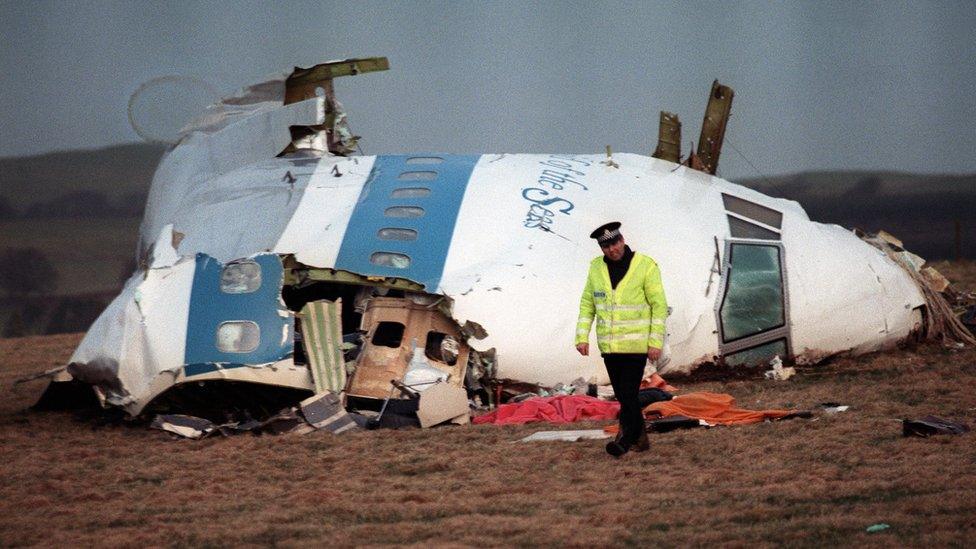Lockerbie bombing: Libya could work with US on extradition
- Published

A total of 270 people died in the Lockerbie bombing on 21 December 1988
Libya's foreign minister says her country could work with the US on extraditing a man wanted over the 1988 Lockerbie bombing.
Najla El-Mangoush told the BBC that "positive outcomes are coming" in the case of Abu Agila Mohammed Masud.
Mr Masud is alleged to have been a top bomb-maker for former Libyan leader Muammar Gaddafi.
The deadly attack on Pan Am Flight 103 from London to New York killed 270 people, including 190 Americans.
It remains the deadliest terrorist incident ever to have taken place in the UK, and the second deadliest air attack in US history.
Of those who died, 35 were study-abroad US students who were returning home for Christmas, while 11 were killed on the ground in the Scottish town.
Libya accepted responsibility in 2003 and paid compensation to the families.
Ms El-Mangoush said the Libyan government "understands the pain and sadness" of the victims' families but "needs to respect the laws".
The US and Libya were collaborating on the case, she said, and it was progressing.
Mr Masud is a former Libyan intelligence official who is currently in a Libyan prison having been convicted on unrelated charges.
He has been charged in the US with terrorism-related crimes.
US officials claim he helped build the bomb which downed the aircraft, and set the timer.
Much has changed in Libya since the Lockerbie bombing. Gaddafi was overthrown and killed by rebels in 2011 and the country has been beset by unrest since then.
Elections in 2014 left the country split, with rival centres of power in Benghazi in the east and Tripoli in the west.
The current Libyan government in Tripoli wants good relations with the US, and the US wants Mr Masud to be extradited. The BBC's Orla Guerin in Tripoli says the signs are that ultimately the new suspect will be handed over.
US officials also say Mr Masud conspired with another Libyan intelligence official, Abdelbaset al-Megrahi.
Al-Megrahi maintained his innocence until his death in 2012 and his son has vowed to clear his name in the UK courts.
In the US, Kara Weipz, whose brother was killed in the bombing, said putting Mr Masud on trial in the US would bring peace to the families of victims.
"I think we all need that peace," she told the BBC.
But among bereaved relatives in the UK there are questions and doubts. Some believe Iran was to blame for downing the plane not Libya, and the new charges are a smokescreen.
Dr Jim Swire, whose daughter Flora died in the bombing, said he did not believe the new extradition request had any purpose "other than maintaining the fiction that there is a meaningful ongoing criminal investigation still extant".